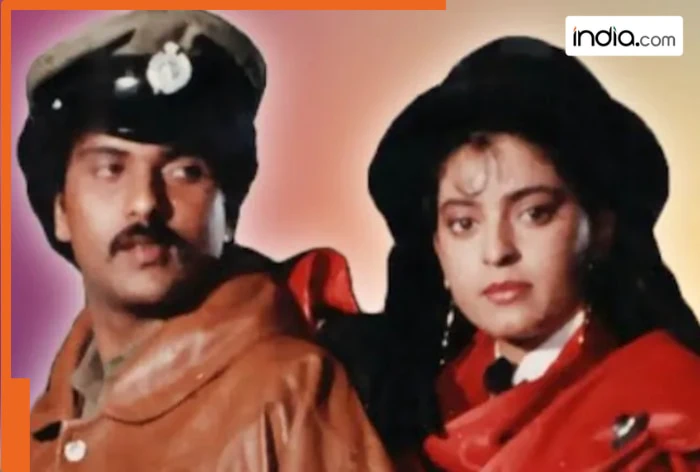In early 1990s, Indian cinema witnessed an ambitious endeavor that sought to transcend linguistic and regional boundaries. A visionary filmmaker embarked on a project that would feature three of the nation’s most celebrated actors, aiming to create a cinematic masterpiece that resonated across the country.
This grand vision materialized into a film that, despite its star-studded cast and monumental budget, failed to make a mark at the box office.
Which film is this?
The film we are talking about is Shanti Kranti (1991), directed, produced, and written by Kannada actor-director V. Ravichandran. This multilingual action-crime drama was simultaneously shot in Kannada, Telugu, Tamil, and Hindi, which was considered a pioneering move at the time.
Ravichandran himself played the lead in the Kannada version, while Telugu superstar Nagarjuna headlined the Telugu edition. The Tamil and Hindi versions featured the iconic Rajinikanth in the lead role. Juhi Chawla, Khushbu, and Anant Nag were part of the ensemble cast across all versions.
What was the storyline?
This film revolves around courageous police officer who sets out to dismantle a dangerous organ transplant mafia. The film’s plot centers on the gritty underworld of illegal organ trading, where innocent people are kidnapped and exploited for profit. As officer delves deeper, he uncovers a powerful network of criminals backed by influential figures, making his mission both life-threatening and morally challenging.
How was the box office reception and why is Shanti Kranti considered one of the big projects from Regional cinema?
With a staggering budget of Rs 10 crore, Shanti Kranti was most expensive Indian film at the time, surpassing the previous record held by Amitabh Bachchan’s fantasy drama Ajooba. Lavish sets were constructed, including a 50-acre plot for the climax, and significant investments were made in visual effects and production design. Despite these efforts, the film failed to connect with audiences. Released in September 1991, it garnered Rs 8 crore across all versions, falling short of recovering its production costs. The film’s underwhelming performance was attributed to its weak narrative and inability to engage viewers, despite the presence of major stars.
The financial failure of Shanti Kranti had severe repercussions for Ravichandran. Having invested his personal savings and resources into the project, he faced significant financial distress. In the aftermath, Ravichandran shifted his focus to directing remakes of successful Tamil and Telugu films, a move that eventually helped him regain his footing in the industry.
